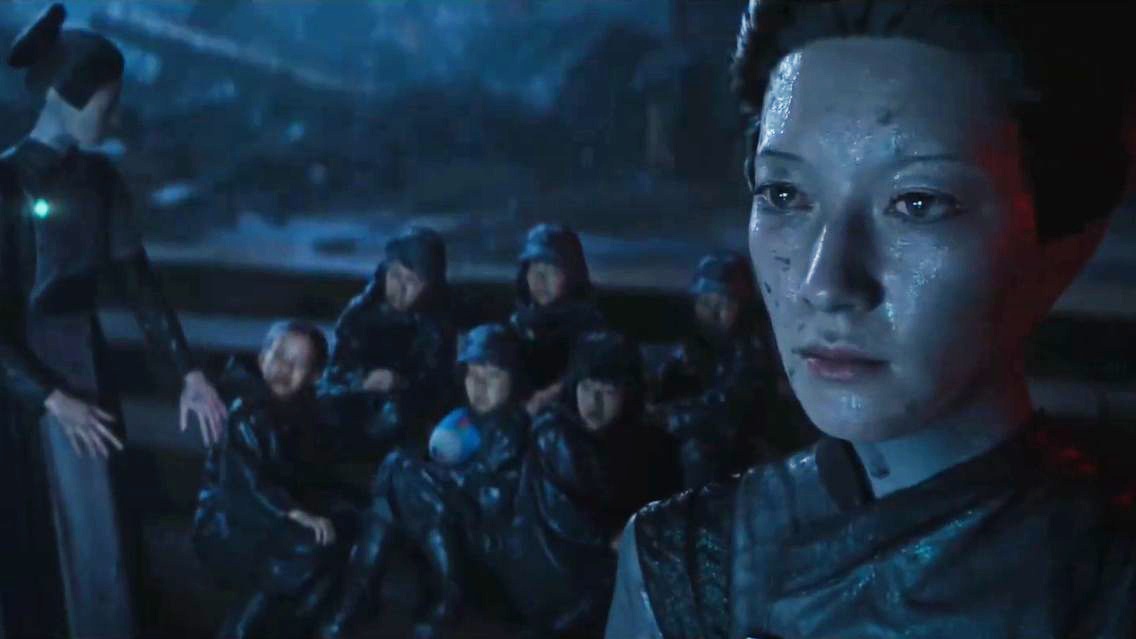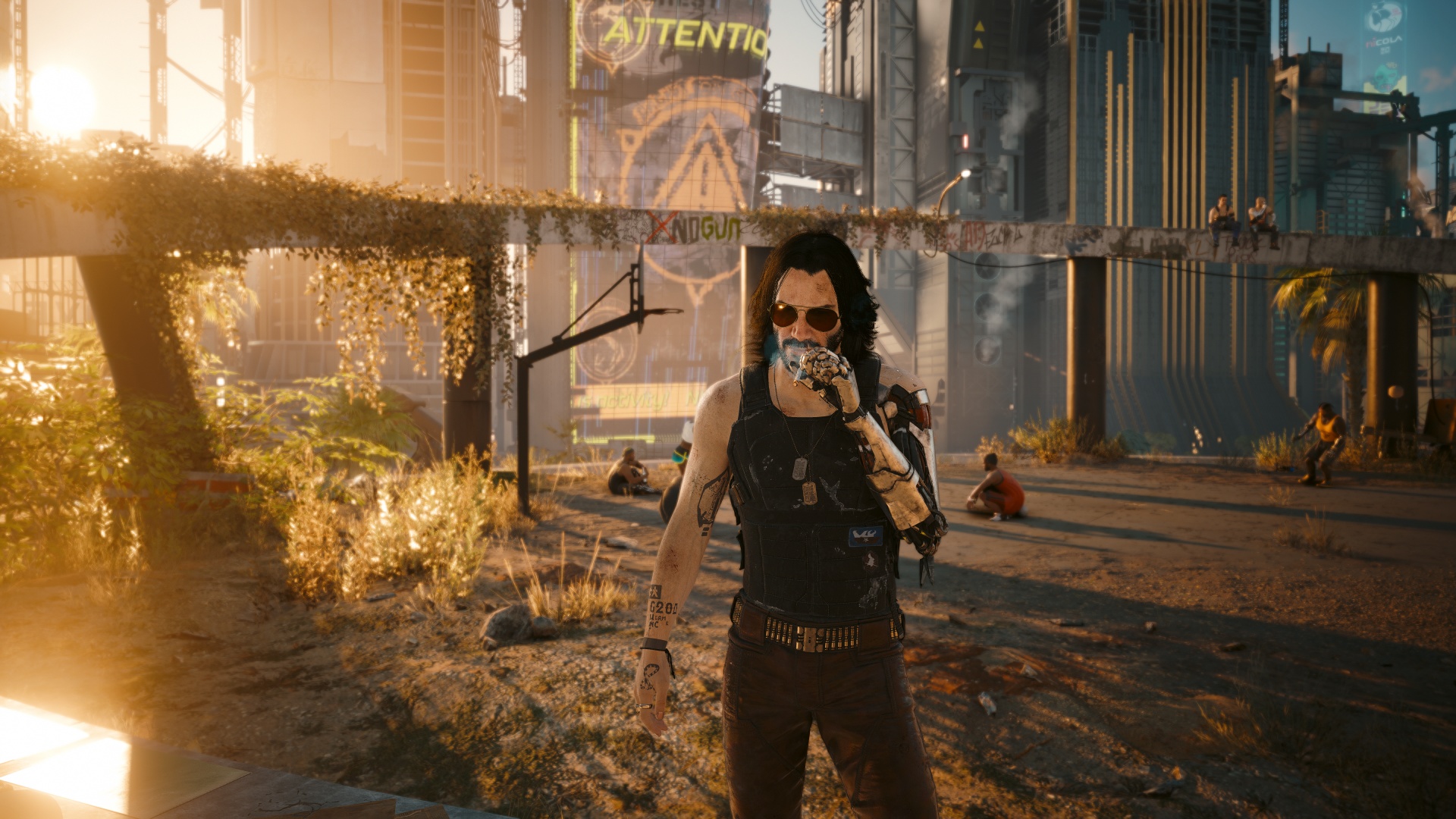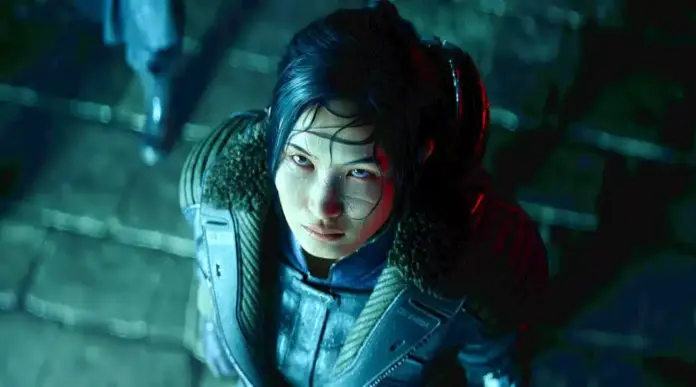Last Sentinel could become an extremely important game, says Thomas At least if the developers take cyberpunk seriously as a genre
The trailer for Last Sentinel shown at the Game Awards is one thing above all – stylish. Lightning flashes past red neon signs and illuminates a rain-swept, aging Tokyo. A gloomy vision of the future in which a robot trudges past an armed special forces commando as naturally as if the neighbor were going to get bread rolls in the morning
Human android ladies (Detroit: Become Human sends its regards!) do their best to protect a group of children from the unwelcome intruder. But while they seem doomed to fail, the “Demon” dispenses merciless justice. With a coolness almost exclusively reserved for anime, heroine Hiromi Shoda throws herself off her motorcycle, kisses every policeman on the forehead with a bullet and saves the helpless civilians.
That sounds like plenty of action and the typical cyberpunk fight against an unjust regime – but the developers are also promising to tackle current burning issues such as climate change in their open-world game. A great opportunity that Last Sentinel definitely can’t ignore for me.
Graphic cracker with a big chance
Last Sentinel is the ambitious debut work of a new studio. Lightspeed LA (an offshoot of Lightspeed Studios) brings together triple-A veterans who have previously worked on GTA, Red Dead Redemption, The Last of Us and Star Wars Jedi: Fallen Order
That sounds like big names and big plans: it is to be an open-world action game in Unreal Engine 5 with a story focus set in a dystopian Tokyo. And graphically quite chic to boot, as the first trailer at least gives us hope:
Studio boss Steve C. Martin was previously at Rockstar and promises a captivating story experience with an open game world at the Game Awards. Of course, the title will have to compete with top dog Cyberpunk 2077, which has already impressively demonstrated how many good stories can be told in a dark future scenario.
But a completely different statement makes me prick up my ears. Last Sentinel is really set in our world and depicts a futuristic Tokyo, which has fallen victim to climate change The sea level has risen to such an extent that large parts of the cosmopolitan city would sink into the water – only a large protective wall keeps it from doing so. As always, the safe upper city is reserved for the rich and famous
This is where Last Sentinel gets really exciting for me. Because it gives the developers the chance to focus on the issues that will occupy us now or in the coming years.
From sea level to AI Art
Even if Last Sentinel becomes a work of fiction – its game world is not. We are in Tokyo and not in Night City or on some nameless, alien Earth. The developers can take advantage of this and show what our cities might look like after the sea level has risen inexorably or after our planet has warmed by several degrees. Where do we live now? How do we live? Where does our food come from? What about our jobs, poverty and wealth, our future?
Cyberpunk is so much more than hacking, flying cars or laser weapons. Take artificial intelligence, for example, which is already on everyone’s lips. Humanoid robots that might even develop a consciousness are a popular topic. And from the trailer, they also seem to play a role in Last Sentinel.

How AI influences our lives will also be crucial in the future. Some work will be made easier by AI, others more difficult, some perhaps even superfluous. As an illustrator, for example, I am already confronted with AI art. Because everything is still so new, there is often a lack of clear rules and ethical guidelines
Artists complain about illegally stolen and repurposed works, AI enthusiasts want to get creative with the technology and make work processes easier, big companies like Riot Games suddenly find themselves confronted with (plagiarism) accusations due to secretly submitted AI art and other artists (suddenly have to submit work steps) to prove that no machine had a hand in it. A cyberpunk game can show and deal with all these facets on a large and small scale
Gloomy and full of hope
I want Last Sentinel to have cool cyberpunk action and in-depth storytelling, like Cyberpunk 2077 already inspired me. But at the same time, I also hope that the developers show courage and don’t shy away from current topics.
Cyberpunk is an incredibly important and powerful genre because it can hold up a mirror to society. It takes what’s there and spins the threads a little bit further. What happens if everything stays the way it is now? Where will we end up in five, ten or 50 years’ time?
It’s not about spaceships and distant civilizations like in other science fiction, but about our everyday lives, about what will affect and move us all, every person, on a daily basis. Of course, there are still the big conspiracies, the super hackers and megacorporations fighting their own wars in between. The window through which we peer into the dystopian future rarely reveals much beyond the bleakest and most hopeless corners.

Even then, not everything will always be bad and lost – just like it isn’t now. But games, series, books and films can be great at showing us the dark side. And remind us that sometimes we have to work to see the good things or actively make them happen
That’s why Last Sentinel won’t be a dark, hopeless game for me, but one that asks us the right questions when we play it and awakens in us the desire to take the future into our own hands.
Are you looking forward to Last Sentinel or are you still skeptical about the cyberpunk project? What was your personal highlight of the Game Awards 2023 and why? Let me know in the comments!


